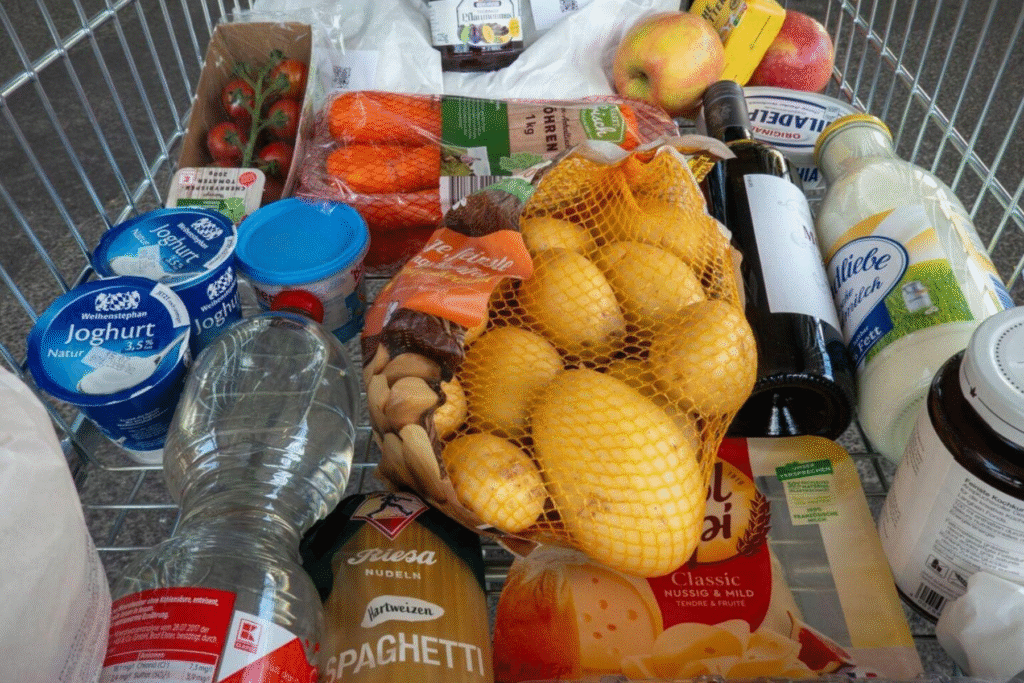
Finance Minister Markus Marterbauer (SPÖ) has proposed introducing price controls on food to combat inflation, but the suggestion has met with skepticism from several economic experts. Although inflation rose to 3.5% in July, the main drivers were not food prices but household energy costs—particularly electricity—according to inflation specialist Josef Baumgartner from the Austrian Institute of Economic Research (WIFO), as quoted in the Salzburger Nachrichten.
Baumgartner noted that even Spain’s left-wing government avoided imposing price controls, instead opting to cut value-added tax (VAT)—a move that ultimately benefits wealthier households more in absolute terms. Moreover, any proposed intervention wouldn’t take effect until the end of the year, which coincides with the expiration of Austria’s electricity price cap, the return of green energy surcharges, and higher grid fees—all of which are expected to phase out the current price pressures.
A European, Not Just Austrian, Problem
Holger Bonin, director of the Institute for Advanced Studies (IHS), questioned whether VAT reductions would even reach consumers, given that companies are also under pressure from rising costs. Bonin and Marterbauer both pointed out that budgetary constraints make such tax cuts unlikely in the first place.
Baumgartner emphasized that rising food prices are not unique to Austria but are part of a broader European trend. He cited foot-and-mouth disease as a cause of rising meat prices, while Bonin pointed to cold weather and lower yields driving up the cost of fruits and vegetables. Climate change-related crop failures, such as for oranges and coffee, are also a factor.
State Incentives Seen as More Effective
According to Bonin, state-driven incentives would be more effective than price controls. These could include boosting new construction, encouraging consumers to switch energy providers more often, and increasing price transparency in the food sector. Reducing the density of grocery stores could also lower fixed costs, though that would mean longer trips for consumers. Bonin also supports targeted financial aid for low-income households.
Wage policy is another area of debate. According to Oberösterreichische Nachrichten, IHS economist Sebastian Koch suggested that wage restraint could help ease inflation. But PRO-GE union chairman Reinhold Binder insisted that maintaining workers’ purchasing power must remain the top priority in upcoming wage negotiations.
Price Caps Could Fuel Black Market, Experts Warn
Price caps are not a solution, Koch argued, pointing to Hungary’s experience. There, retailers stopped stocking goods they couldn’t profit from, fueling the black market instead.
Christoph Badelt, president of Austria’s Fiscal Advisory Council, made a similar point on ORF’s Ö1 Mittagsjournal: it’s unclear what would be classified as a basic necessity, and eventually, any government-imposed price controls would have to be lifted—potentially triggering a new wave of price increases. He added that stores may stop carrying regulated products altogether.
Retail Industry Pushes Back, Points to “Austria Markup”
Retail industry leader Rainer Will said that retailers themselves are struggling with soaring costs, with profit margins ranging between just 0.5% and 2.5%. “Blaming retailers for price increases is like blaming the mailman for your tax bill,” he said on Ö1 Morgenjournal.
Will also highlighted the issue of territorial supply restrictions. Major manufacturers often prevent retailers from sourcing products in other EU countries, enabling price discrepancies. Smaller countries like Austria or Belgium are often hit hardest.
As an example, Marterbauer pointed to the ice cream brand Cremissimo, which sells for €5.99 in Austria but only €2.89 in Germany. The Federal Competition Authority has labeled this a clear “Austria markup” by global food manufacturers. Will called on the finance minister to advocate for an EU-wide ban on this practice—an idea supported by the Chamber of Labor (AK), whose economist Michael Ertl also condemned the pricing disparity.
Badelt added that if these industry markups are confirmed, it would warrant EU Commission intervention. If not, efforts should be made to increase competitive pressure in the market.

